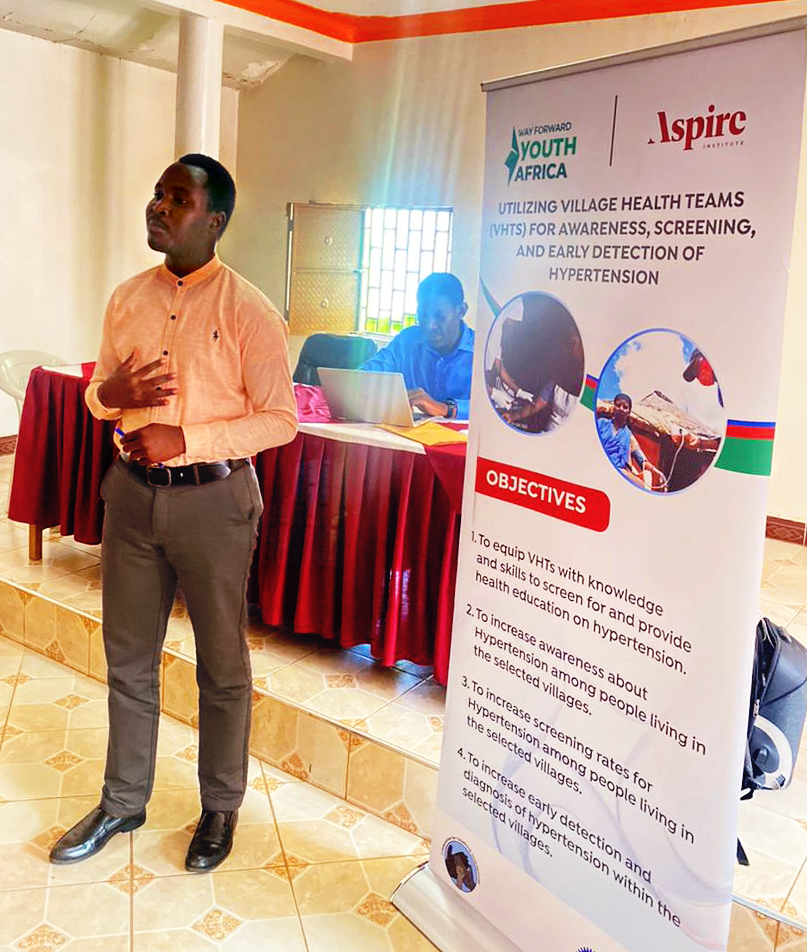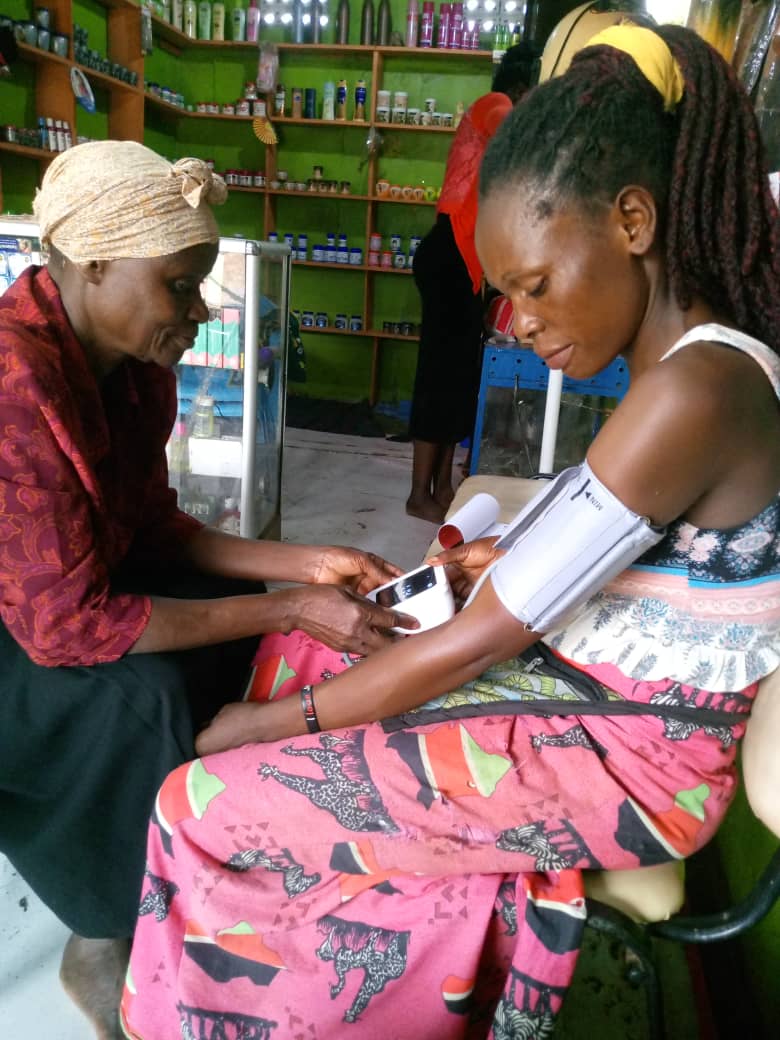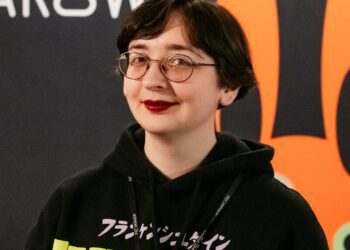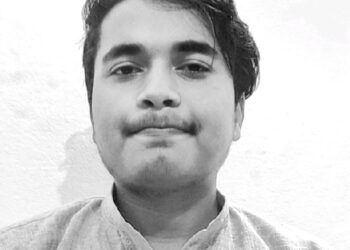
Andrew Marvin Kanyike, a 26 year old from Uganda completed the Aspire Leaders Program in 2022 and received a Community Action Award for his project aiming to increase early detection of hypertension in Eastern Uganda. His commitment to medical research and making an impact on community health has led to his ongoing success.
Kanyike grew up in Entebbe, Uganda, where both of his parents spent their lives. His father was a businessman who completed some of high school while his mother received a primary teaching certificate and continues to teach primary school today.
He dreamed of being a medical doctor from a young age and always performed well academically. When he received government money to attend university, this was incredibly important for his family.
“It was a very big win for my family; for me, for my parents in terms of tuition and fees, and for my other siblings who were also chasing dreams,” Kanyike explained.
Today, he works as a medical practitioner at Mengo Hospital, a nonprofit organization and the oldest hospital in Kampala, Uganda, in addition to continuing his career as a researcher.
A Passion for Research

While completing medical school, Kanyike balanced his time between academics and extracurriculars — a lifestyle choice that remains important for him. Through participation in multiple student groups, he expanded his horizons and took on leadership roles.
“I got to meet a lot of people and it really motivated me to see other medical students doing other things outside the classroom, too,” he said. “That made me sure that I could do the same.”
Research has connected me with quite a number of international friends across borders. Students, researchers, and others interested in advanced study, we learn from each other.
Through the university’s community-based education and research services, he was able to travel to ‘hard-to-reach’ areas of Uganda, where there are poor health indicators and difficulty accessing quality care.
This experience incited his desire to pursue research. Although still early in his career, Kanyike has been an author on about 20 papers, including topics from COVID-19 response to maternal health to diabetes.
Kanyike values his research experience and how it has exposed him to international contexts. He continues to volunteer at various NGOs, attend international research conferences, and mentor undergraduates interested in medicinal research.
“Research has connected me with quite a number of international friends across borders,” he said. “Students, researchers, and others interested in advanced study, we learn from each other.”
The First Generation College Experience
Kanyike was the first in his family to go to university; however, he was not alone in entering university with this background.
“During the first year of medical school, we shared a lot with each other, and I realized that so many of us were here chasing our dreams of being the first M.D in their family — and many were first born too – it’s a big achievement.”
Just like Kanyike, many of his peers were first-generation college students who received government scholarships. These friendships he built in medical school have transcended into their personal lives. They continue to support each other’s families and work hard in their careers.
Time in the Aspire Leaders Program
While pursuing his work as a pre-intern at Seed Global Health after graduating university, Kanyike learned about the Aspire Leaders Program (ALP).
“Moving through the Aspire program, especially the Foundational Principles for Leadership course, piqued my interest,” he explained. “I learned a lot about leadership and got to see how some of my own practices as a student leader were effective, or weren’t effective.”
I learned a lot about leadership and got to see how some of my own practices as a student leader were effective, or weren’t effective.
This course improved his leadership skills and positioned him to win respect and authority within his own community. He also cherished auditing a course on community health, which gave him insight into how to transfer information and practices from medical professionals to community health workers, which he directly applies to his CAA-funded project today.
This project focuses on early blood pressure screening to further study noncommunicable diseases.
“So many people have problems, like skyrocketing blood pressure, but they only find out when they have severe problems,” Kanyike said.
His father passed away just over a year ago from hypertension — a tragedy that has further fueled his work in this area.
For me, it’s all about the impact — the reward is seeing how far it can go.
“The government tends to fund the cure of more communicable diseases, but we are trying to make people see that this is just as important,” Kanyike emphasized. “We are working on a sustainability plan for getting more people treated for hypertension. Now that the clinics are filling up, it’s not enough to just identify people, but you have to make sure that they are getting proper treatment.”
Kanyike works hard, but the feedback from the community keeps him driven.
“It’s the testimonies from people in the community – the community health workers getting knowledge about this, receiving a machine, having their life changed,” he said. “For me, it’s all about the impact — the reward is seeing how far it can go.”
Advice for Aspiring Leaders
Kanyike hopes to continue his work and inspire others to reach their full potential.
“I look forward to seeing more Ugandans go through the ALP,” he said. “I want to see them get grants and do new work and learn from them too.”

His advice for them and other aspiring leaders is to give it their all. Kanyike believes the Aspire Leaders Program can be a great addition as these future leaders pursue their dreams.
“You need to give your best, put everything into your work,” he encouraged. “Have the intention of learning as much as you can.”
When asked what advice he had for medical students specifically, he said to focus on dynamic learning.
“It’s not only about becoming a medical doctor, but a doctor who can do something [and] who can make a difference in the world,” he said. “This experience is an added value.”




